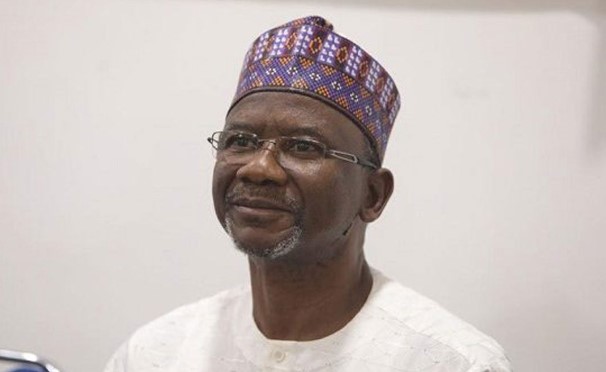Spread across 5,000 hectares of land with a diversion dam and 15-kilometre irrigation canal that enables all-season farming, Adarice Farms is unarguably the most eloquent showcase of Enugu state’s prowess in rice cultivation. Over the years, however, the production output of this vast farm estate declined to such an extent that its potential was mostly spoken of only in regard to its past heyday.
At a point, rice cultivation took place on barely a fifth of the land available for farming. Indeed, Adarice Farms was a fitting metaphor for how agriculture – once the mainstay of Nigeria’s economy – was knocked off its enviable perch by the intoxicating flow of oil money. The Enugu state governor, Ifeanyi Ugwuanyi, alluded to this anomaly in his inaugural address, in 2015, when he said the fall in oil price and its adverse effect on revenue accruing to states was an opportunity to look inwards and harness those potentials, which free oil money had suppressed. “It is an opportunity to live to our full potential and leave the feeding bottles of the federalism syndrome,” he added.
So, a few months after his inauguration, he organized the Enugu State Investment Summit to showcase the state’s economic potential in line with his pledge to diversify its economy. The administration also listed 14 moribund state-owned (mostly agro-based) companies and agencies for privatisation and commercialisation. There is no doubt that the wait and search for would-be investors have been long and painstaking. But the signing of a memorandum of understanding between Ellah Lakes Plc and the Enugu state government, and subsequent take-over of the management and operations of Adarice Farms and associated assets have clearly been a major culmination of that initiative.
The deal represents a new lease of life for the farm which had operated sub-optimally for years. Chuka Mordi, chief executive officer of the company, listed on the Nigerian Stock Exchange on January 14, 1993, reflects this optimism. “Today is a great day for the company, and we have achieved yet another of our set milestones for 2022. We are ready to commence the management and turnaround of the fortunes of Adarice Farms, and we fully intend to take the farm to new heights with the cultivation and processing of rice, soybean and cassava. Ultimately, the plan is to turn the entire area into a staple crop processing zone and bring economic growth and prosperity to the entire sub-region”.
Advertisement
Of course, the mood is just as upbeat in Enugu state, particularly in Adani, the host community and adjoining communities in Uzo Uwani local government area. The investment is a shot in the arm of the local economy, as the company will develop a feed mill and ethanol processing plant on the site. In addition, over 200 indigenous farmers will be involved in the local out-grower programme. So, the projection that the joint venture can create no less than 5,000 jobs in the next 24 months is no exaggeration.
Although decades of neglect may have made agriculture seem like a halfhearted pastime, a sustained trend of progressive state policies lately has encouraged investments in the sector, reaffirming its preeminence as Nigeria’s major employer of labour and, indeed, a contributor to national growth. This is supported by data. For instance, data from the National Bureau of Statistics for 2021 shows that agriculture was the highest contributor to the country’s GDP at 29.9%, with a 1.22% year-on-year growth. Oil and gas was listed 5th with a 7.49% contribution, representing a -10.7% negative growth.
Investing in agriculture may neither create the biggest buzz nor tangibility that politicians tend to crave, but the governor knows fully well that its outcomes remain robust leverage that can help diversify Enugu state’s economy. This is the root of the agricultural revival unfolding in the state. Indeed, evidence of the agricultural renaissance in the state is strong. It is the new reality that has fueled the state government’s sponsorship of over 1,000 young farmers in Enugu state to a two-week training at CSS Global Farms, a privately-run commercial farm in Keffi, Nasarawa state. The young farmers often return from the training organised in phased cohorts convinced that the knowledge gained would bolster their career as agro-entrepreneurs.
Advertisement
The government has also launched the Agricultural Feeder Roads projects, resulting in the rehabilitation of several kilometres of roads in major farming communities across the three senatorial zones. Farmers in these communities receive inputs such as long grain rice seeds, improved cassava stems, fertilizers and pesticides distributed by the state government. Also, vast tracts of rice fields that once lay fallow as farming increasingly seemed like a halfhearted pastime in the wake of the oil boom have gradually come alive. For instance, all the rice the Enugu state government used as COVID-19 palliatives were procured locally from communities where the crop is cultivated.
The new investment in Adarice will be a boon to Coal City Rice, the Enugu state rice brand created in the wake of the coronavirus pandemic. For years, governments at the federal and state level have voiced a desire to exploit the country’s potential in agriculture to give the economy a diversified base. The problem is that such pledges rarely went beyond lip service. But, happily, Enugu is showing sufficient will in that regard.
Ani is a senior communications aide to the governor of Enugu state
Advertisement
Views expressed by contributors are strictly personal and not of TheCable.
Add a comment







